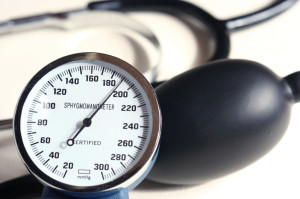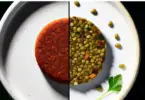By Dr. K.J. McLaughlin
Guest Writer for Wake Up World
High blood pressure is a leading cause of heart attack, stroke, blindness, and kidney disease. High blood pressure or hypertension is one of the most common diseases associated with the aging process and may not have any particular symptom pattern.
There are many treatments currently available for this condition including several types of drug and lifestyle interventions. Among the different lifestyle interventions, the diet is an area which has received a great deal of attention.
There are several different diets that have been recommended to lower high blood pressure or prevent it from occurring. The DASH (dietary approaches to stop hypertension) diet which has been previously recommended is a low-fat, low-sodium diet designed to control blood pressure. This diet encourages a higher intake of whole grains, fish, poultry, vegetables, and dairy products and less red meat, fats, oils, and sugar. Other diets that support the intake of plant foods are purported to be the best type of diet to lower high blood pressure and keep it lower, as are diets that are much lower in carbohydrates but higher in fat.
Although the scientific evidence is contradictory in this regard, some new research may provide a greater degree of clarity.
[pro_ad_display_adzone id=”110028″]
The Blood Pressure Diet
Research conducted by scientists in Japan and the U.S. consisting of a meta-analysis of 39 studies, looked at the relationship between diet and hypertension. The studies were conducted in 18 different countries and involved over 21,000 subjects.
The results of this analysis indicated that those subjects who avoided the consumption of meat had the lowest blood pressure readings and were more likely to have normal blood pressure compared to people who consumed meat. The people consuming the vegan-style diet had an average seven-point decrease in systolic (higher number) pressure and a five-point decrease in diastolic (lower number) pressure measurements compared with meat-eaters.
According to the study author, subjects who ate meat would be better advised to switch to a diet higher in vegetables, whole grains, and legumes. It was also found that other subjects who switched to more of a plant-based diet could reduce their blood pressure to a greater extent than drugs.
The results of this study are similar to those that have indicated that less saturated fat from meat and more fiber and complex carbohydrates from vegetables, whole grains, and legumes is very effective in lowering high blood pressure. Other studies that have assessed the effects of less meat consumption, lower fat, and more complex carbohydrates upon blood pressure have arrived at the same conclusions. These types of diets are lower in sodium and saturated fat and are higher in potassium, fiber, antioxidant nutrients, and fiber. These dietary changes can decrease blood pressure very reliably.
This study really did not distinguish between the various types of vegan-style diets but did indicate some very interesting findings. The analysis indicated that over a six-year period, those who consumed a vegan style diet that included fish had the lowest risk of death relative to meat-eaters and other vegans.
In my opinion, diets which contain generous amounts of vegetables, whole grains, brightly colored fruits, legumes, fish, poultry, yogurt, and healthy fats from nuts, olive oil, and avocado are among the best for lowering high blood pressure and reducing the risks of chronic diseases like heart disease, diabetes, and stroke.
Source:
Wanjek, C., “Vegetarian Diets Lower Blood Pressure Best;” http://www.livescience.com/43627-vegetarian-diets-lower-blood-pressure.html
Previous articles by Dr. McLaughlin:
- Sodabriety: School Program Combats Childhood Obesity and Soda Consumption
- Food Addiction and the Obesity Epidemic
- Poisonous and Toxic? What You’re Eating That’s Killing Your Brain and Body
- Guava: the Tropical Fruit That Can Protect Your Heart, Lower Your Blood Pressure & Much More!
- Top 5 Healthy Foods for Improved Vision
About the author:
 Dr. K.J. McLaughlin has degrees in nutrition, physical education, and is a certified strength and conditioning specialist with an interest in anti-aging medicine. He has a diverse professional background in clinical management, teaching, health promotion, and health coaching, and is also a chiropractor with 27 years of clinical experience. He has also spent time studying health promotion and the effect that health education has on health outcomes.
Dr. K.J. McLaughlin has degrees in nutrition, physical education, and is a certified strength and conditioning specialist with an interest in anti-aging medicine. He has a diverse professional background in clinical management, teaching, health promotion, and health coaching, and is also a chiropractor with 27 years of clinical experience. He has also spent time studying health promotion and the effect that health education has on health outcomes.
Bringing a unique passion to his work, Dr. McLaughlin lives and practices the principles of fitness, wellness, and nutrition. He goes to the gym regularly and consumes a healthy diet.
Dr. McLaughlin appears by kind courtesy of foods4betterhealth.com
[pro_ad_display_adzone id=”110027″]







